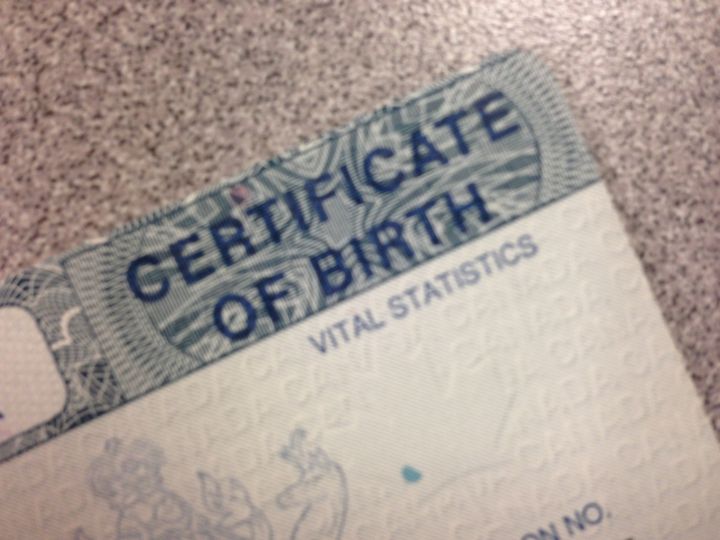British Columbians who do not identify as male or female can now choose to display an X in the gender field of their B.C.-issued driver’s licence, identity card, birth certificate and BC Services Card.

“Since last summer, we have been working on changes to government documents in recognition and respect of people who do not identify as male or female,” B.C. Health Minister Adrian Dix said. “Including the X gender designation on key ID is an important step in this.”
The move is described by the B.C. government as a first step. Trans Care BC defines non-binary as an umbrella term referring to diverse people whose gender identity is neither female nor male.
Last year, Joshua M. Ferguson, whose ID is designated male but who doesn’t identify as a man or a woman, wasn’t allowed to use “X” as a gender marker on a combined driver’s licence/B.C. Services Card after an application was rejected.
Ferguson does have an Ontario issued birth certificate with an “X” marking gender.
“Well I am very thankful residents will now be able to apply for X marker for sex on their B.C. driver’s licence and care card and other forms of identification in actual fact I haven’t been issued my correct B.C. ID with an X marker than I have applied for 16 months ago and had rejected by the B.C, government,” said Ferguson on Friday.
“For 16 months I was forced to identify as either M or F and I experienced ridicule, embarrassment and anxiety each and every time I had to present my B.C. identification.”
The case is still before the B.C. Humans Rights Tribunal. Ferguson is unclear on whether they need to reapply for the licence with the “X” marker because it was originally rejected under the old rules.
The B.C. government has been consulting with other jurisdictions in Canada about the change announced on Friday.
“The lack of an alternative for those who do not identify with the male or female designation has previously resulted in cases that were being considered at the Human Rights Tribunal,” said Attorney General David Eby. “This change is a step in the right direction to promote inclusivity for all people in British Columbia.”
The ministries are also exploring the next steps required to move to a non-medical model of gender identification to advance equity and inclusivity.
For people born in British Columbia they must submit a Change of Gender Designation Application form along with a copy of the physician’s or psychologist’s confirmation form to the Vital Statistics Agency to switch from a gender designation to an X. Upon request, the Vital Statistics Agency will issue a birth certificate that reflects the new gender marker and there is a cost associated with getting a new birth certificate.
The next step is for someone to send the new birth certificate to Health Insurance B.C. to allow them to update their system. At this point a letter will be sent to ICBC so that the driver’s licence can be updated.
For people not born in B.C., but who are now B.C. residents, Vital Stats cannot change gender designations for other jurisdictions, but ICBC will be provided with updated information in order to change the someone’s licence.
Last year, the federal government announced Canadians would be able to have an “X” put in place of gender in their passports.
“As a trans individual, I know from personal experience that having identification documents that reflect who I am positively affects my access to education, employment, housing, health care and much more,” Trans Care BC project manager Gwen Haworth said.
“I’m grateful that the province is taking this action and confident that it will benefit many British Columbians and their families.”
As part of B.C. moving toward a non-medical model of gender identification, government will be reviewing the requirements for supporting documentation from health-care practitioners.
The X designation could also provide more information for health care providers in treating binary gender patients.
“As a physician who works with trans and gender-diverse people, I have observed the multiple ways that non-binary people are invisiblized within our society, with negative impacts on their health and well-being,” Trans Care BC medical director Marria Townsend said.
“This is a positive step towards recognizing and affirming the humanity of those British Columbians who don’t identify as male or female.”




Comments